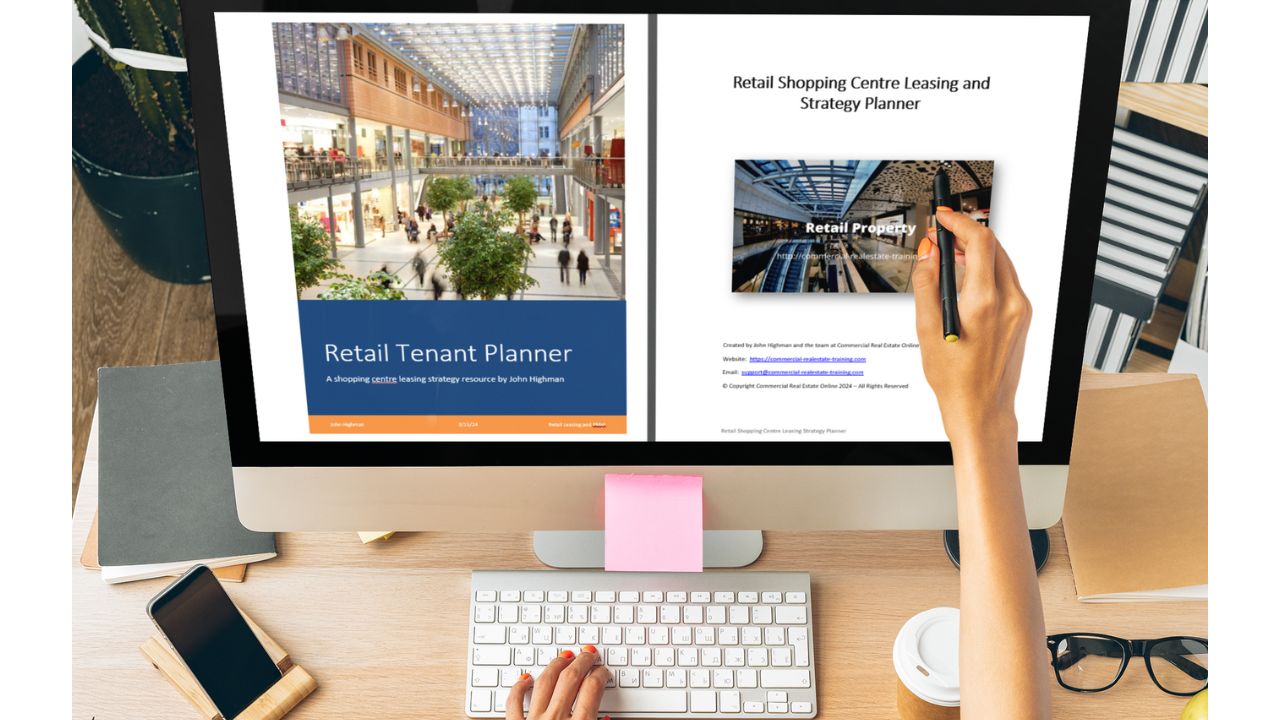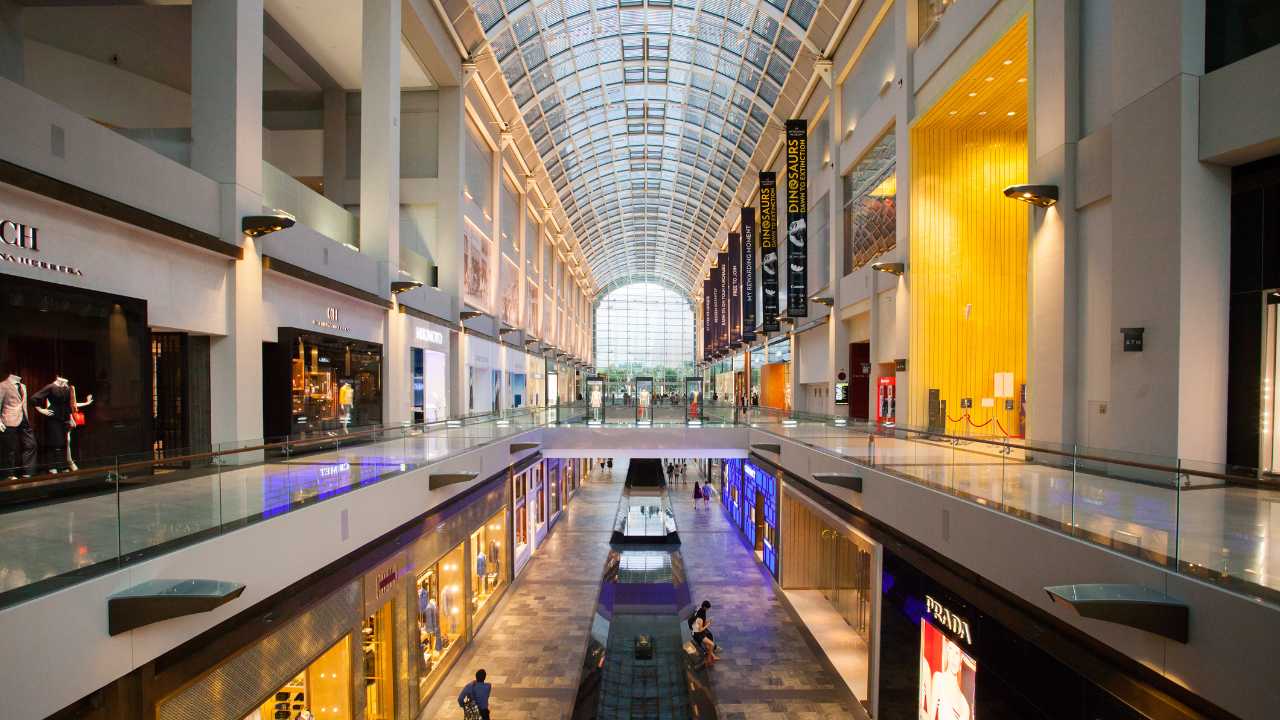The Key Strategies to Leasing Retail Shopping Centres Today
In today’s dynamic market, leasing retail shopping centres can feel like navigating a maze. With the right strategies, however, you can streamline the process and attract better tenants who align with your vision.
The retail landscape constantly changes, from customer demographics to emerging marketing techniques. Understanding these key elements will enhance your leasing strategy and elevate your shopping centre’s success. Here are the top strategies to consider when leasing retail shopping centres.
In this article, we’ll explore essential tactics for securing quality retail tenants while creating an appealing environment for shoppers. Whether you’re new to shop leasing or looking to refine your approach, these insights will provide valuable guidance for maximising rental potential and ensuring long-term success. Let’s dive deeper into how you can effectively lease retail spaces today!

Download retail property checklist here
Checklist for real estate agents in sales, leasing, or property management.
Get the fully detailed retail property and shopping centre checklist in PDF form for your ongoing reference and use in sales, leasing, or property management activity with investment properties.
Placing Quality Tenants
Finding quality tenants is crucial for the success of any retail shopping centre. It’s not just about filling space; it’s about selecting businesses that enhance your property’s appeal and profitability. Many businesses are out there, but not all are the right fit for your shopping centre.
To start things off, consider your customer demographics. What age groups and income levels are you targeting as customers? What are their interests and spending habits? These questions will help you pinpoint the types of businesses that are most likely to succeed in your centre.
Here are some tips for identifying quality tenants: As you consider potential retail tenants, make sure they have a solid business plan and financial stability. A good credit score, strong cash flow, and a proven track record of success are all signs of a quality tenant. Additionally, make sure their offerings align with your centre’s demographics and the needs of your community.
For example, suppose your shopping centre is in a neighbourhood with many young families. In that case, you may want to prioritise businesses that cater to this demographic, such as children’s clothing stores or toy shops. Similarly, if your property is in a trendy, upscale area, you may want to attract high-end fashion boutiques or luxury goods stores.

Target Market Specifics
Understanding the target market of your shopping centre will help you identify and attract quality tenants that will thrive in your space. You can also consider the tenant mix in your area to fill a gap in the market. You need to choose the ones that align with your vision and complement other tenants. To identify quality tenants, you must first understand your target market and what they’re looking for in a retail destination.
Start by assessing potential tenants’ business models. Look for those with strong financials, a solid customer base, and a proven track record in their industry. A well-established brand can draw foot traffic while maintaining high rent levels. Franchise-type tenants can bring proven brands to your shopping centre that are customer magnets.
Consider synergy among tenants as well. Businesses that complement each other create a more vibrant shopping environment. For example, pairing clothing stores with cafes or fitness centres can increase overall sales.
Don’t overlook tenant reputation either. Engage in thorough background checks to gauge reliability and community standing. Quality tenants not only pay rent on time but also invest in marketing, further boosting visibility for your shopping centre.
Matching Customer Demographics
Understanding your retail customer demographics is crucial when leasing retail shopping centres. Knowing your target audience can greatly influence the type of tenants you attract. Customers’ age, income, spending habits, and preferences will help you identify what type of retail tenants are best suited for your shopping centre.
Different shops appeal to various shoppers. For instance, a family-oriented neighbourhood might benefit from stores focusing on children’s products and services. Conversely, an urban area with young professionals may thrive with trendy cafes and boutique shops. Knowing your target audience not only helps you identify quality tenants but also aids in configuring your tenant mix.

What are the Market Trends?
It’s also essential to analyse local trends. Are there emerging preferences or shifts in consumer behaviour? Keeping a finger on the pulse will help you align your leasing strategy accordingly. For example, the COVID-19 pandemic accelerated e-commerce adoption, and many tenants look for retail spaces that accommodate omnichannel shopping experiences. You may want to consider this when leasing your space.
Moreover, attracting better tenants means seeking those who resonate with the community’s identity. When businesses reflect the needs and desires of local customers, foot traffic increases—and so does success for both landlords and retailers alike. To understand your target audience comprehensively, consider conducting market research or partnering with a professional to help analyse customer demographics and trends.
Shop Lease Marketing Plan
A successful shop lease marketing plan is essential for attracting the right retail tenants. Crafting a strategy that resonates with potential lessees can make all the difference. Consider these elements when creating a marketing plan for your shopping centre.
Start by highlighting the unique features of your shopping centre. Showcase location advantages, foot traffic statistics, and nearby amenities. Use high-quality visuals to capture attention online. Moreover, use social media platforms to promote your shopping centre. These platforms are an excellent way to showcase your shopping centre’s features and attract potential tenants.
Promote through various channels—social media, email newsletters, and real estate platforms. Tailor content to speak directly to targeted audiences based on their demographics. For instance, you can use LinkedIn to target business owners for office or retail space. Explore placing ads in local newspapers, magazines, and trade publications.

Create the Contact with Tenants and Have Inspections
Engagement matters too. Organise open houses or virtual tours for prospective tenants to experience the space firsthand. Offering incentives, such as rent-free periods or reduced fees for the first few months, can also attract potential tenants.
Consider partnerships with local businesses or community events as part of your marketing approach. This not only fosters relationships but also enhances visibility in the area. Moreover, you can also consider offering referral programs to existing tenants. This will encourage them to refer other businesses to your shopping centre.
Staying updated on market trends will keep your strategy relevant and effective in attracting better tenants for long-term success. Ensure that your marketing plan reflects current developments in the retail industry and your specific location.
Lease Documentation
Lease documentation is the backbone of any shop leasing agreement. It defines the relationship between landlords and retail tenants, laying out crucial terms of occupancy. A quality lease has to support a good tenant and shop leasing strategy for the long term
Make no mistake. A solid, property-specific lease document protects both parties. Clarity in rights and responsibilities helps avoid conflicts down the line. Key elements include rent amounts, payment schedules, and maintenance obligations.
Always ensure that legal jargon is easy to understand. Ambiguities can lead to disputes; clarity fosters trust instead. Moreover, make sure to include a detailed description of the leased property and its condition. This can help avoid disputes over damages or neglect of the space.
Critical Dates and Lease Clauses
Including renewal options or termination clauses can provide flexibility for both sides. These are essential as market conditions change. Be comprehensive and cover all potential lease situations; the lease document should include security deposit provisions and other fees. Things can go ‘wrong’ in a lease occupancy, and a tenant can create difficulty. Prepare for all situations at the time of lease document creation.
Consider adding escalation clauses tied to inflation rates or property value increases. This keeps rental agreements relevant over time. Finally, make sure that the lease document complies with any local or state laws and regulations.
Investing time in thorough lease documentation prevents headaches later on. Well-prepared documents pave the way for successful tenant relationships within shopping centres.

Rental Strategies
Finding the right rental strategy is crucial in today’s competitive landscape. Owners of shopping centres must be flexible and innovative to attract desirable retail tenants. One effective approach is implementing tiered rental rates based on sales performance rather than a fixed rent. This aligns the interests of both landlords and tenants, encouraging growth for everyone involved.
Consider the long-term benefit of a tenant to your retail property. Offering incentives such as reduced rents during the initial months can help new businesses establish themselves without financial strain. These strategies also create an appealing environment for better tenants looking to minimise risk while maximising their potential.
Understanding which retail businesses thrive in your area allows you to tailor these rental strategies effectively. Adjusting lease terms or incorporating shorter leases may attract more diverse shops, increasing foot traffic and overall revenue.
By focusing on solid relationships with your retail tenants through adaptable rental agreements, you can foster long-term success for your shopping centre while ensuring your spaces remain vibrant and appealing to customers.






